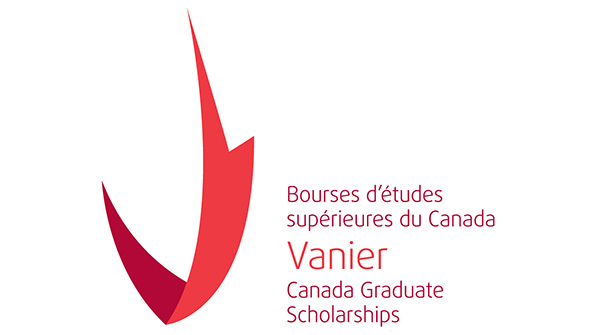 About being a Vanier Scholar
About being a Vanier Scholar
What does receiving a Vanier Scholarship mean to you?
It is a huge honour to be named a Vanier Scholar. The biggest honour is being recognized as an effective leader, something I have always strived to be. Of course, I cannot take all the credit. There is a long list of individuals who I have considered mentors, whose shoulders I stand upon. My goal has always been to try and continue their legacies by mentoring those around me to create more effective leaders, but also to motivate and foster their individual research potential as well.
Tell us about your Vanier research.
I often use the analogy of a garden. Everyone is always jealous of their neighbour’s garden which is properly watered, fertilized and weeded. Oftentimes, we expect the same results from our garden even though it’s shaded and neglected. Like plants, our bodies need the proper environment to develop effectively. It is well known that exposures during gestation and during your first years of life can have major impacts on future health outcomes. This can include maternal nutrition, stress, and exposure to environmental toxins. Additionally, pediatric obesity is a strong predictor of lifetime obesity, which has been associated with heart disease, stroke, and type 2 diabetes. Given that the rates of childhood obesity have quadrupled globally since 1975, there is a looming threat to public health care given the link of obesity to chronic disease burden. Like the garden analogy, to promote healthy development, we need to ensure children are particularly healthy during gestation and during early life.
My research uses metabolomics which analyzes the molecular fingerprints left behind by diseases and health events to better understand their underlying impacts on health. More specifically, we analyze small, biologically relevant molecules in biofluids (e.g., blood, urine, or stool). When these biofluids from children are studied, we can answer some pressing questions about childhood obesity while discovering new biochemical insights. With this information, individuals most at risk can be identified so public policy and health-care interventions can be tailored to these populations.
About graduate student life
What inspired you to pursue a postgraduate degree?
Since 2019 I have been working alongside many inspiring graduate students in my current role as a research technician in the Britz-McKibbin group here at McMaster. Having been immersed in research since 2019 and seeing the success of our lab group’s research, including my own, the impacts of our discoveries feel very tangible. This alone has provided plenty of motivation to pursue a PhD. When it comes to my contributions, I have felt truly supported by both Dr. Britz-McKibbin as well as Dr. Meera Shanmuganathan, our group’s former lab supervisor. Through their support, I felt very encouraged and driven to pursue a postgraduate degree.
Why did you choose to study at McMaster?
Besides McMaster being full of clinical, epidemiological, and population health experts who can help support our research, McMaster is also the birthplace of evidence-based medicine. With this approach, McMaster is always aiming to integrate the strongest available evidence, in conjunction with clinical expertise and patient values, to provide the best possible health care. The implications of this research on care in Canada and elsewhere could be tremendous, making McMaster the ideal fit for this research.
What do you love most about your graduate program?
I have taken a slightly unconventional approach and will be starting grad school in January 2025, so I’m looking forward to discovering everything the chemical biology program has to offer. As a current staff member of the Chemistry and Chemical Biology department, there is always something going on – which I love. Whenever there is an event hosted by the department, it seems most staff and graduate students attend which really builds a sense of community.
What is your favourite thing about McMaster and the broader Hamilton community?
Growing up in a small town I have come to appreciate that the campus is slightly removed from the downtown core; the green space is what drew me to McMaster. It feels like an oasis within a city. You can also get anywhere on campus in 15 minutes – another perk.
When you’re not busy being a graduate student, how do you like to spend your free time?
Besides being an avid Toronto Maple Leafs and NASCAR fan, I try to spend most of my free time with my family and friends. Most of my summer weekends fill up fast, spending time at my family’s cottage. There you can find me lounging on the beach, playing a round of golf, or sitting around a campfire. Games of any kind often fill my free time as well. I am also looking forward to beginning curling this winter.
Beyond Grad School
What do you see as the next step in your life journey?
Time will ultimately tell – I’m trying to leave as many doors open as possible. Had someone told me during my first year of undergraduate studies that I would be completing my PhD, I don’t think I would have believed them. At one point I was certain academia was not the route for me but look at me now. In my current position I get the opportunity to lead, mentor and teach undergraduate, graduate, and visiting students. That is where I find I am the most impactful, so I hope mentoring others would be a part of my post-graduate school life. I also hope to define my career by being collaborative. Having been able to support many multidisciplinary projects, I have worked alongside biologists, clinicians, and epidemiologists. Given this work, I recognize the importance of these collaborations in answering many of today’s most pertinent questions.

